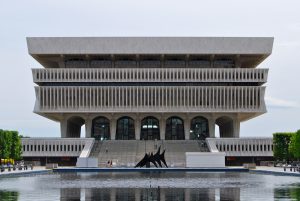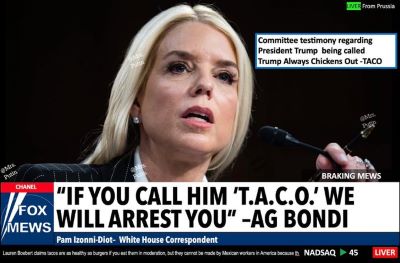


In January, Colorado hired a new state historian. When I saw the notice, it prompted me to examine what being a state historian in Colorado meant and what that might mean for New York. As it turns out, although the title is the same, there are significant differences in how the two states operate. Technically the Colorado state historian will be part of History Colorado which according to its website is a twenty-first-century historical society. Its mission is:
Inspiring generations to find wonder and meaning in our past and to engage in creating a better Colorado
History Colorado is a private organization:
Established in 1879, History Colorado is a 501(c)(3) charitable organization and an agency of the State of Colorado under the Department of Higher Education. We offer public access to cultural and heritage resources of Colorado, including statewide museums and special programs for individuals and families, collection stewardship of Colorado’s historic treasures, educational resources for schools, students and teachers, services related to preservation, archaeology and history, and the Stephen H. Hart Research Library.
As a private organization it operates under the authority of the State Department of Higher Education so there are immediate differences with New York.
The additional areas of responsibility according to its website are:
History Colorado’s statewide activities support tourism, historic preservation, education and research related to Colorado’s rich western history, offering the public unique opportunities to interact with Colorado history through its network of museums [9] which offer engaging exhibitions and special programs for adults and children.
Through our education programs, we work with schools across the state to provide classrooms and teachers with important resources and curriculum related to Colorado history, and offers local communities resources that help them to enrich historical-related community based programs.
Through the State Historical Fund historic preservation grants program, History Colorado has awarded millions in competitive grants to all 64 counties across Colorado, which has resulted in a more than $1.5 billion impact on Colorado’s economy.
As the State Historic Preservation Office, the Office of Archaeology and Historic Preservation handles the processing and documenting of statewide archaeological and historic preservation related projects.
These functions exist in New York as well but are not concentrated in one area.
In his recent post to New York History Blog on the state of the state historian
former state historian Bob Weible wrote that New York moved its State Historian from the Governor’s office to the newly formed Department of Education in 1911. According to Bob, after World War II, besides increasing support for the state’s many historians, historical societies, and history museums, the newly revitalized Office of State History took on the weighty responsibility for managing thirty-two state-owned historic sites. This configuration more closely matches what Colorado does today with the primary difference that one is a private 501(c)3 and the other a state entity.
To push the comparison further, Bob reports that:
a blue ribbon commission appointed by Nelson Rockefeller would even recommend the elevation of the State Historian position to assistant commissioner status with responsibilities for overseeing historical research, the state archives, a state history museum (separate from the existing, scientifically oriented State Museum), field services, and historic sites.
Clearly nothing like that exists with the current dysfunctional organization.
Bob went on to report that attempt to create something substantive did occur recently:
SED’s Office for Cultural Education, which oversees the State Archives, Library, and Museum, presented a 2011 strategic plan to SED’s Board of Regents that included the reinvention of the Office of State History [This link is to a site which can not be found.] And the Regents approved. The plan for State History was supposed to have been initiated in 2013 however, and it wasn’t, thanks principally to the Museum’s bureaucratic foot dragging.
The Legislature did get involved in its own way to no avail. When Assemblyman Steve Englebright chaired the committee on Governmental Operations, he sought to consolidate the history operations into something more closely resembling what the blue ribbon commission had recommended, the Regents had approved, and what Colorado now has. That effort went nowhere. He subsequently sought to create the equivalent of a history steering committee encompassing the disparate history functions scattered among the state bureaucracy. I attended and wrote about such a History Roundtable meeting held in May 2014. That effort went nowhere either. New York continues to remain dysfunctional with no end in sight. The silos rule.
One change is happening. Bob became the state historian after the position had been vacant for seven years. However when he did so, technically he was not hired as state historian regardless of the press release to contrary. As far as the state payroll system was concerned he was the Chief Curator of History at the New York State Museum. In practice the majority of his time was spent as the curator of history exhibitions at the museum in Albany who occasionally would be allowed to leave the premises to attend statewide conferences such as APHNYS and NYSHA. He really did not have the staff, funding, or time to operate as a true state historian providing leadership to the history community in the state.
As goes the state, so go the counties. The situation in the history community involving the public historians is one where the state law continues to be flouted similar to the seven-year vacancy on the state level. Although officially the state takes pride in requiring all municipalities and counties to have an historian the requirement is disrespected by either not having one or not providing resources to make the position effective especially at the county level. In the recent APHNYS newsletter, President Gerry Smith who is a county and municipal historian who has a day job in a library where he actually can earn a living, wrote:
One initiative that we will work on in 2016 is a push to have every vacancy filled for every community. We will also be trying to ensure that those vacancies are filled by individuals and not museums, historical societies, etc.
Good luck with that effort. Worthy as it is, what incentive do mayors, town supervisors, or county executives have to comply with the law when New York State history is such a low priority in Albany?
As previously reported in a post by Orange County Historian Johanna Yaun, I said in a county history at Sullivan County, that I knew of only two full-time county historians in the state and they were in the audience: Johanna and Will Tatum of Dutchess. They thought there were a few more so I contacted a few people I knew who answered for themselves and some others they knew. So while this is not state survey here are the results:
Fulltime County Historians
Dutchess County Historian Will Tatum
Livingston County Historian Amie Alden who was once the subject of a post to New York History Blog
Orange County Historian Johanna Yaun
Wyoming County Historian Cindy Amrhein
Part-Time County Historians
Cayuga County 3 people
Putnam County Historian Sarah Johnson and 3 people
Fulltime Government Employees as County Historian and Records Manager
Chautauqua County as per Aime Alden
Genesee County as per Aime Alden
Montgomery County Kelly Yacobucci Farquhar
Wayne County Peter Evans
Gerry Smith informed me that a survey will be taken in January of all the counties so it will be good to have that information. Such a survey was last completed in 2001 by the then temporary state historian. Don’t you think that the state historian should have a database of all the government historians. Perhaps we can suggest that to the new state historian.
Yes, there will be a new state historian. I was just contacted by:
Patricia Polan
Associate in Instructional Services
Office of Curriculum and Instruction
New York State Education Department
Patricia.Polan@nysed.gov
Telephone: 518-473-0741
She requested I disseminate a job posting for:
Position: NYSED::Senior Historian, SG-22
Salary: $64,302 to a maximum salary of $81,415 based on annual performance advances
Location: Albany
The New York State Education Department (NYSED) is seeking to fill the position of Senior Historian in the New York State Museum. This position will serve as the Historian for New York State. The State Historian will have broad researched based knowledge about New York State, conduct research, provide statewide coordination and leadership of the historical communities in New York, promote collaboration, and a scholarship that ensures a greater understanding of the history of the State. Under the direct supervision of the Chief Curator (History), duties of this position will include, but are not limited to, the following:
- Perform historical research about New York State;
- Provide guidance and leadership to New York State academic organizations, institutions, and local government historians appointed pursuant to Arts and Cultural Affairs Law 57.07;
- Review annual reports submitted to the Commissioner of Education by local government historians;
- Advise and assist any state agency, board, commission, office, civil subdivision, institution or organization in the planning and execution of any commemorative, scholarly conference or other gathering event relating to the history of the Colony and the State of New York;
- Examine historical material to determine its significance and validity; and
- Publish information concerning the history of the State of New York and regarding collections of historical materiel for academic and popular publications and (media) outlets.
MINIMUM QUALIFICATIONS:
For provisional appointment candidates must possess a Master’s Degree in History, Public History, Art History, American Studies**, or Museum Studies**, and three years of professional experience in collections management and/or research OR a Ph.D. in History, Public History, Art History, or American Studies**.
**Including or supplemented with nine credit hours in history.
PREFERRED QUALIFICATIONS: Special consideration will be given to candidates who possess the following qualifications:
- Doctorate in American History showing a concentration of research of New York State history.
- Five years of experience in the university level lecturing about New York State history.
- Evidence of published peer reviewed historical research.
- Editing of publications about New York State history.
CONDITIONS OF EMPLOYMENT: This will be a provisional appointment. Promotions and transfers may change appointees’ negotiating unit. Applicants should be aware that changes in negotiating units may affect their salary, insurance, and other benefits.
APPLICATION: Qualified candidates should send a resume and letter of interest by March 16, 2016 to ocejobs@nysed.gov (email applications are preferred). You must include the Box number (OCE-937/27442) in the subject line of your email to ensure receipt of your application.
If you are interested in the actual PDF which I received, please contact me. This job posting is a step in the right direction but let’s see what resources the new State Historian to actually function as the state historian the way the Colorado State Historian does. The Conditions of Employment suggest other changes may be in the works.
This person will report to the Chief Curator of History. To see that job description go to the state website.
That position went to Jennifer Lemak who had been filling in for Bob since his retirement last summer.
Bob Weible optimistically ended his post on the state of the state historian with:
Maybe something good will happen. Maybe not. Stay tuned.





